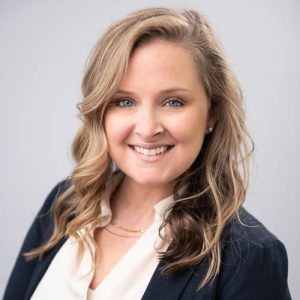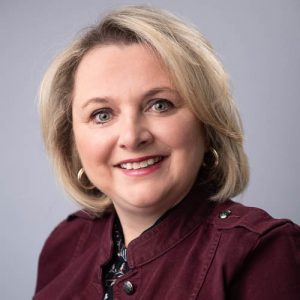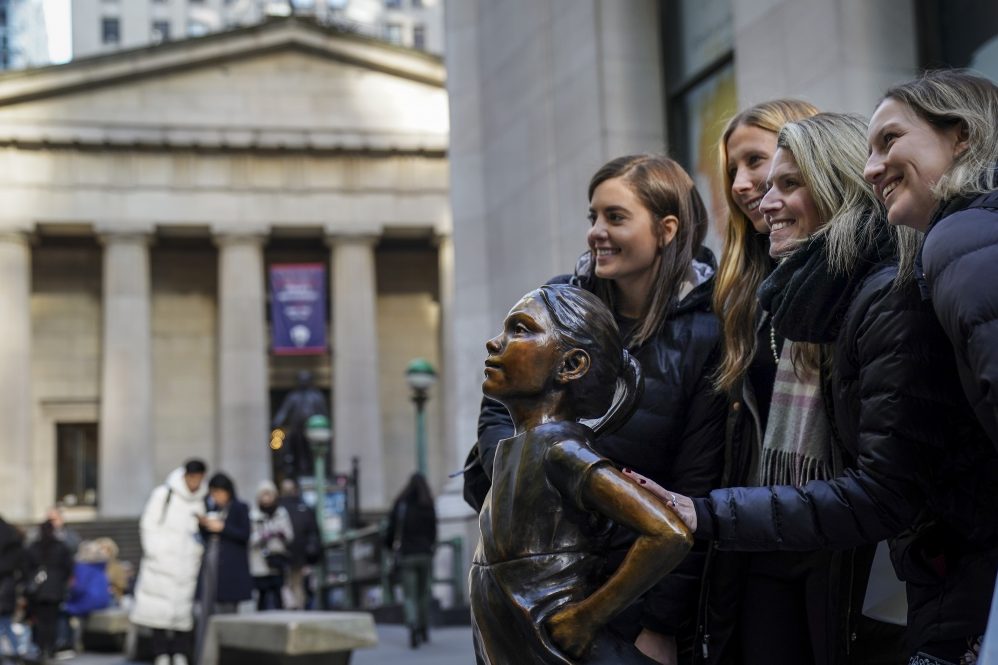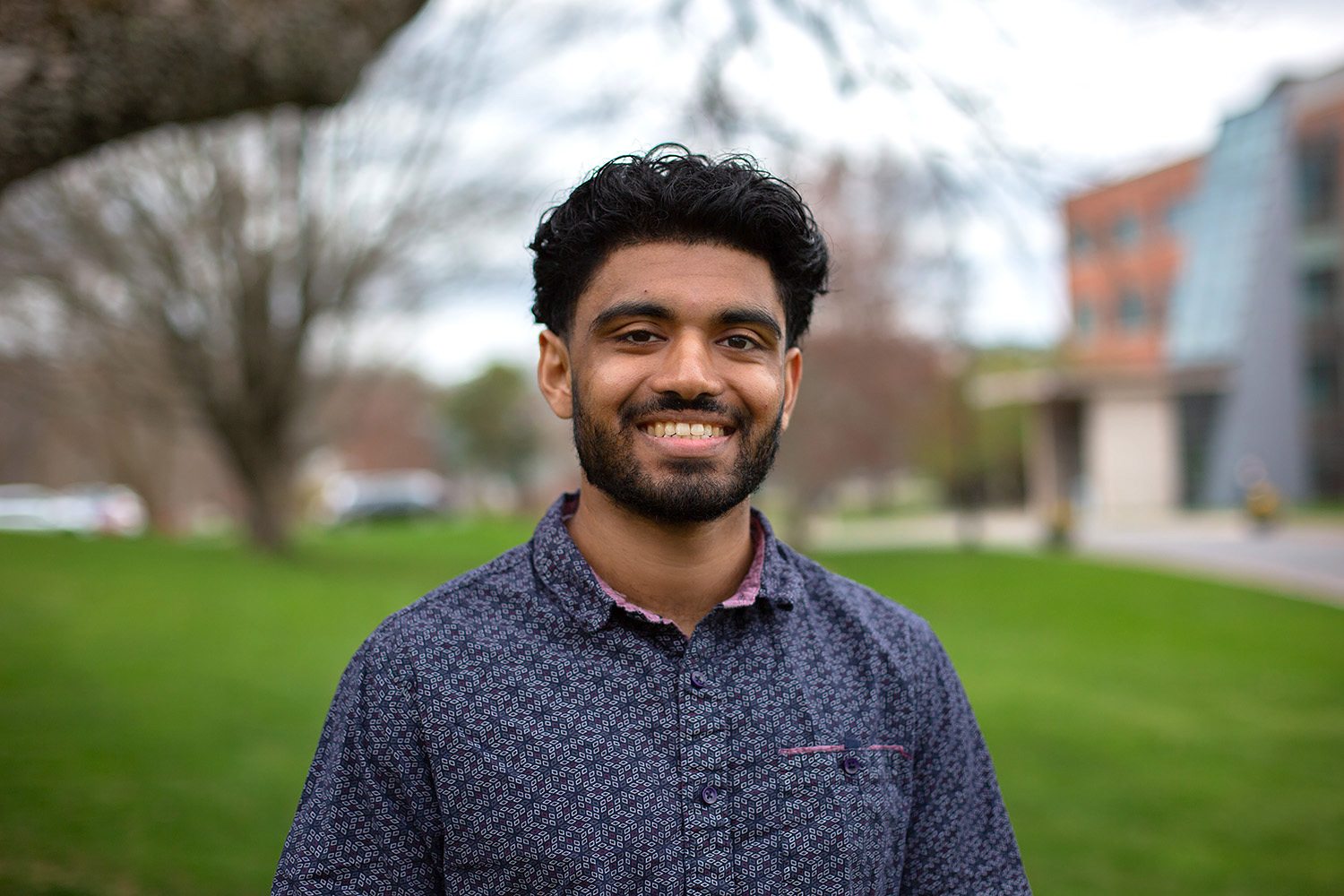What student Madison Jolley ’25 (BUS) loved most about the new course “Women in Finance: Elevating Tomorrow’s Leaders’’ was talking to powerful and inspiring women.
“Many of the women I met were finance majors in college. Others were not, but had found their way into the financial sector,’’ she says. “Speaking with them broadened my perspective and my network.’’
“They wanted to support us with our career goals and to help us get internships,’’ says Jolley, who is new to the UConn School of Business. “I was very surprised by their generosity.’’
Across the Nation, Women Are Underrepresented in Top Finance Jobs
Although women represent nearly half of business students at U.S. colleges, they are usually underrepresented as students of finance. At UConn, women compose only about 29% of the undergraduate students in the major. The new “Women in Finance” course is one effort to ensure that women know that finance is an attractive option for them.
Professor Chinmoy Ghosh, head of the Finance department at the School of Business, says he hopes to see more women succeed in the field.
“There is a dearth of female leaders among the upper echelons of financial management and investment services,’’ he says. “According to the Deloitte Center for Financial Services, only six of the 107 largest financial institutions in the United States were run by female CEOs in 2019.’’
“Women need mentors and role models to show that whatever roadblocks have been preventing them from achieving, or even considering, top-level positions can be overcome,’’ he says. “In the business school, we are committed to helping more women learn about the opportunities available in business and finance, to finding mentors to help guide them, and breaking down other barriers, so the gender gap starts to close.’’
Alana Adams ’05 (BUS), director of undergraduate program at the School of Business who majored in finance at UConn, was the instructor for the course, which debuted this spring.

“Our intention was to help support students, particularly women but also those historically underrepresented in this space,’’ Adams says. “We wanted to give them financial skills, help them set goals, develop a personal brand, and acquire the confidence to take their next steps.’’
The “Women in Finance” course is open to first- and second-year students and due to its popularity, it will be offered again this fall.
“Most of our students had an initial interest in finance as a field. It gave them a great opportunity to explore before committing to a major,’’ Adams says.
‘The Most Challenging Profession I Can Imagine’
Steve Wilson, founder of Lapides Asset Management in Greenwich, funded the course. Investment management has been a fascinating and rewarding career for him, and he hopes to see more women pursue it.
“It’s the most challenging profession I can ever imagine,’’ he says. “You’re competing against a global population of bright and competitive people every day. Absolutely everything that goes on in the world spills over into the investment market, and those who can figure out those impacts have the biggest advantage.’’
Wilson, who started working in finance in 1981, said at that time the finance profession, like many others, was male-dominated.
“Over those 42 years, I’ve seen a dramatic change in the gender mix of other professions, including doctors, lawyers, accountants, and dentists. But the progress in investment management trails behind so many other top-tier professions,’’ Wilson says. “I felt I needed to look in my own sphere, my own domain, and find a way to make a difference.’’

Wilson’s mother, Barbara Lapides, was a graduate of the Class of 1955, and he sponsored the course in her memory. Barbara Lapides earned a business degree from UConn at a time when there were few women business majors. She felt particularly fortunate to attend the University, having lost her father during WWII and struggling with the financial constraints of being raised by a single mother, he says.
Wilson created a scholarship in his mother’s name and when he learned about the “Women in Finance” course he was intrigued, especially with its goal of building confidence and promoting curiosity among women considering the field.
Wilson, who also supports students at his former high school in Queens, N.Y., was aware of the unique challenges facing female students, particularly those in male-dominated industries.
“I’m not sure if the women are not interested, or are intimidated, but both are correctable if someone leads the charge,’’ he says.
Course Featured Conversations with Prominent Women in Finance
The “Women in Finance” course is intended to support and elevate students, particularly women, and others who have historically been underrepresented in the field of finance. Two dozen students enrolled in the course, which is designed to offer industry-specific skills and build confidence to pursue leadership roles.
Students say the opportunity to speak with women in the industry was one of the highlights of the class. Guest presenters included:
- Alumna Mary Ellen Ladieu ’03 MBA, vice president of financial planning for the Walt Disney Company;
- Stephanie Link, chief investment strategist and portfolio manager at Hightower, one of the top registered investment adviser firms in the country;
- Shanna Hocking, a leadership consultant and the author of ‘One Bold Move a Day: Meaningful Actions Women Can Take to Fulfill Their Leadership and Career Potential’ and
- Alumna Noha Carrington ‘85 (BUS), founder and CEO at Carrington Advisors.
Students were also exposed to many career tools, including Forage, where real companies offer project-based work, CaseCoach, a tool created by recruiters to help potential employees become better at interviews, and Wall Street Prep, which teaches practical skills for the financial industry.
Kelly Kennedy, director of transformative learning career education at the School of Business, has been integral in designing the curriculum and finding business leaders to participate in the course. She is setting up a mentor program next semester to help students continue to pursue their career aspirations.
“I really enjoyed the guest speakers,’’ says Samantha Naples ’26 (BUS). “Every speaker was extremely passionate and inspiring. The main thing that really stuck with me was when Shanna Hocking talked about how important it is to make a ‘wins’ list. She told us to keep track of our accomplishments and to pat ourselves on the back when we achieve something. This has given me so much more confidence in myself and makes me appreciate my hard work even more.

“I am planning on sticking with my major in real estate and urban economic studies, but this class has interested me in possibly picking up a finance focus,’’ Naples says. “I believe that the skills learned in this class will benefit me on my journey in the future.’’
Jolley also says the course broadened her perspective.
“Before I took this course, I had worried that I had to select management, finance, or marketing, and that would forever dictate my job title,’’ she says. “But I learned that I’m here to learn as much as I can about business. I can go out and use that degree to take me in many directions. It changed my whole perspective on what a business major is.’’
Adams says the students thought the speakers were outstanding mentors.
“The opportunity for students to learn from phenomenal women leaders and to benefit from their expertise and advice was very valuable,’’ she says.
“The idea for this course was ‘Let’s see what we can do to move away from the cultural phenomenon of how our society is structured,’’’ Adams says. “Representation matters. If you can see it, you can be it. There are some very successful, very powerful women in these spaces.’’



